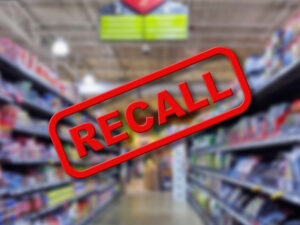
Top Causes Continue to Lead Recalls and FDA/USDA Action
If you were given five guesses as to the top causes of food recalls anytime in the last, say, decade, it is likely that undeclared

If you were given five guesses as to the top causes of food recalls anytime in the last, say, decade, it is likely that undeclared

If you take away nothing else from FDA’s May 2, 2024, publication of the final rule on pre-harvest Agricultural water (ag water) (Standards for the

Salmonella illness levels have not really decreased over the last 20 years despite huge efforts by the regulatory agencies, especially USDA FSIS, to drive down

Although Listeria monocytogenes (Lm) is a serious food risk, particularly in ready-to-eat (RTE) foods, regulations for presence and tolerance levels of the pathogen vary between

Over the last few months, we’ve written a number of articles about state and federal actions related to chemical and additive bans in food products

While you are likely seeing numerous articles on a new wave of highly pathogenic avian influenza (HPAI) in the US, there is a great deal

Does the manufacturing of your product include an exceptionally lethal process? If so, it may adequately control biological hazards, negating your need to otherwise identify

In the last two months, two noteworthy actions have been taken to significantly reduce the long-contentious issue of PFAS in foods: The manufacturer commitment to

Although some state regulations for retail foods require the allergen labeling of bulk and unpackaged foods at retail, it wasn’t until the most recent update